Karawa Nursing Schools
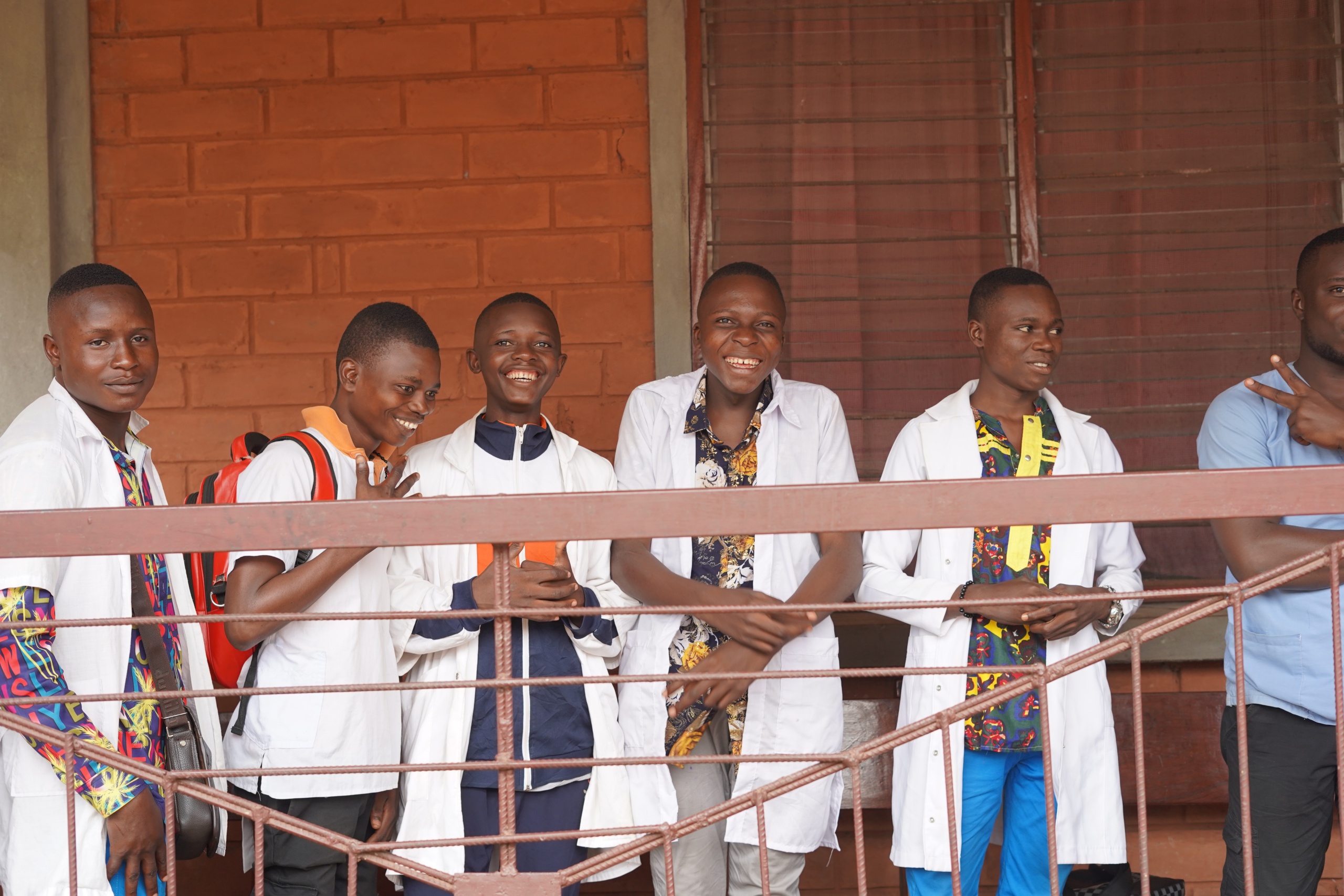
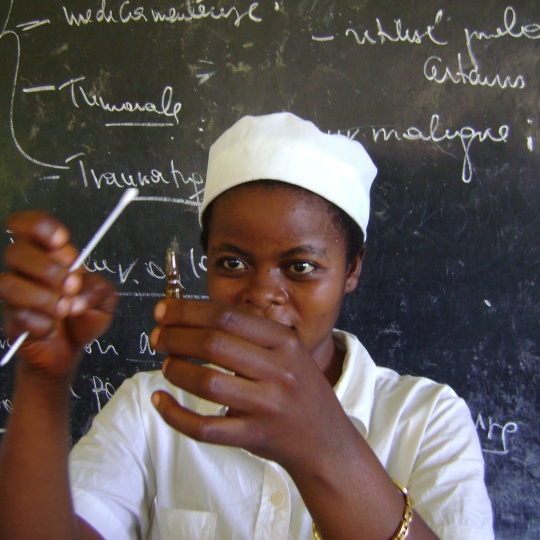
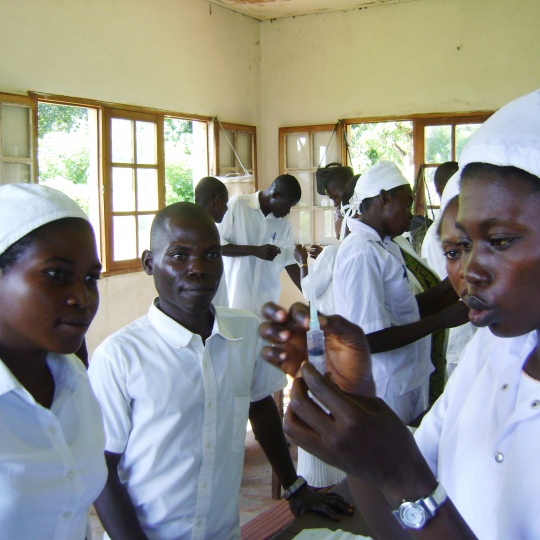
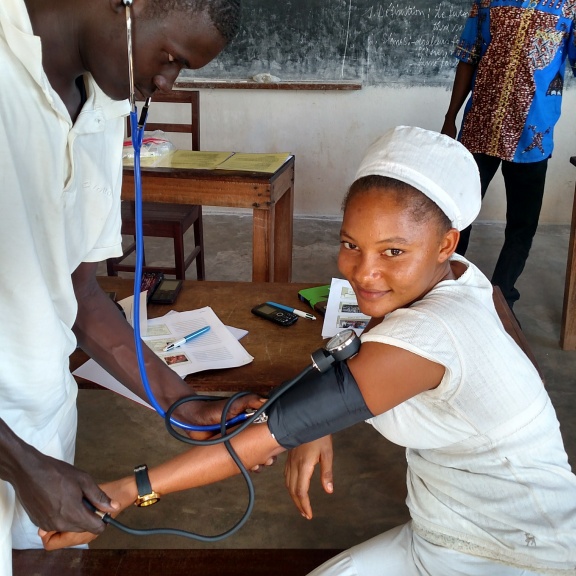
Nurses are the backbone of the Congo’s healthcare system. They are the primary source of medical care for most people, where doctors are sparse and located in centralized hospitals.
Nurses serve both at rural community clinics and regional hospitals. Unlike in the US, many Congolese nurses prescribe medicine, deliver babies, and perform surgeries, often in very challenging conditions, in addition to running public health programs in their communities.
Karawa is home to the area’s main hospital. It is also the administrative center for a health system that serves roughly 5.6 million people in northwestern DR Congo. In Karawa, two collaborating nursing schools provide associate’s and bachelor’s level nursing degrees, with clinical experience both at the Karawa Hospital and at nearby rural clinics. The Karawa nursing schools provide critical training to both current and future nurses throughout this area where both improved medical care and preventive community health education are urgently needed.
Nursing students are supported solely by their families who often work as subsistence farmers. Education costs often become burdensome, causing students to drop out. Those who persevere face the challenge of paying tuition and balancing the cost of books, supplies, food, and personal needs in order to meet their school bill.
After graduation, nurses go on to work in either a hospital or a clinic run by the CEUM, which is in a region overflowing with potential but lacks the basic infrastructure that allows for convenient access to medical care, clean water, and protected living quarters. Many nurses function as independent practitioners, running clinics with physician oversight only once per month.
ITM Institut Technique Médical - Medical Technical Institute (high school level)
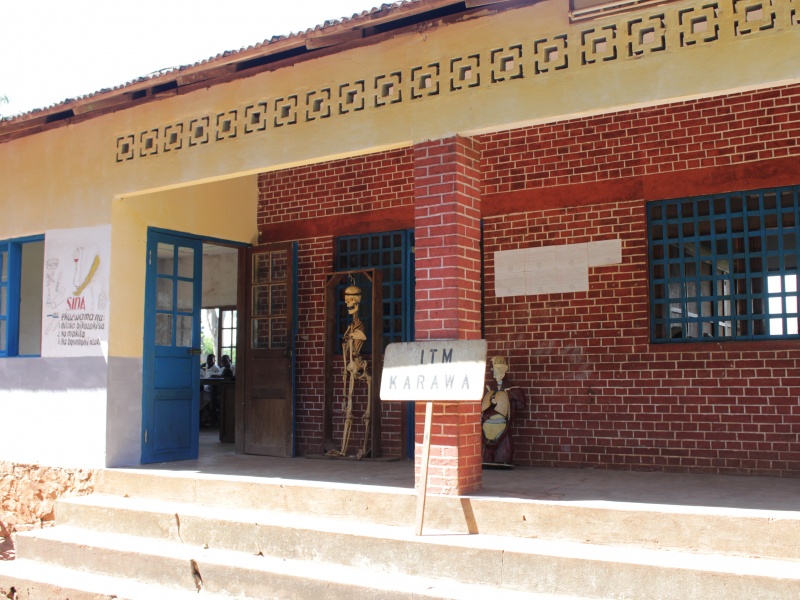
ISTM Institut Supérieur des Techniques Médicales - Higher Institute of Medical Techniques (college level)
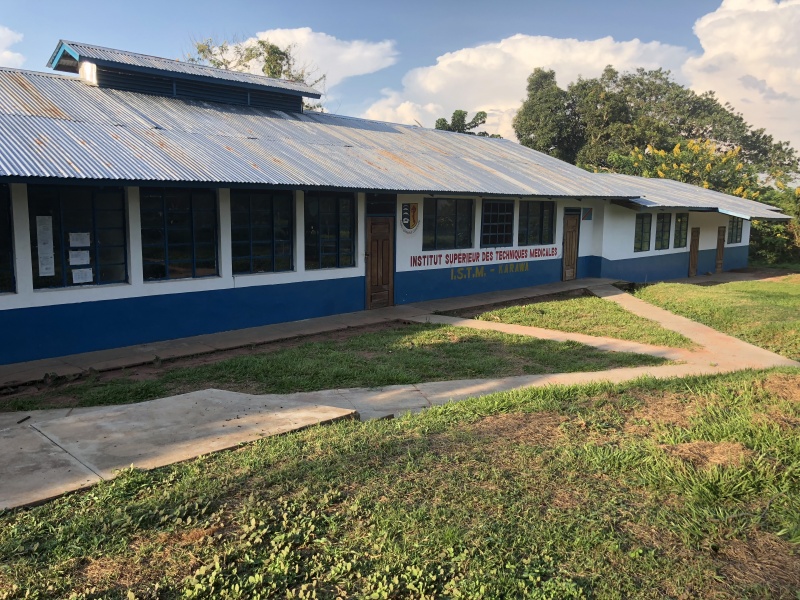
Get Involved
Karawa Nursing Schools
Your gift to nursing education will help strengthen these schools with curriculum, professors, and much needed support. Impact the lives of students, professors, and entire communities through a gift to nursing education.
Lois Carlson Bridges Nursing Scholarship
Lois Carlson Bridges, a former nurse, is the widow of Dr. Paul Carlson. After Paul’s death, her unwavering dedication continued as she helped establish the Paul Carlson Partnership (PCP) in collaboration with the Covenant Church of Congo (CEUM), ensuring that his mission lived on. Her resilience and faith have inspired countless individuals, and her enduring passion for the people of the Democratic Republic of Congo stands as a powerful testimony to servant leadership.
In recognition of Lois’s tenacious spirit and servant heart, the Paul Carlson Partnership created a nursing scholarship in her name, enabling others to fulfill their calling to serve the Lord and the people of the DRC. This scholarship provides financial support for:
- Two Congolese nursing students each year
- Administrative assistance to the CEUM Director of Nursing
- One U.S. nurse facing financial obstacles, enabling them to travel to the DRC as a PCP Medical Ambassador to train others.